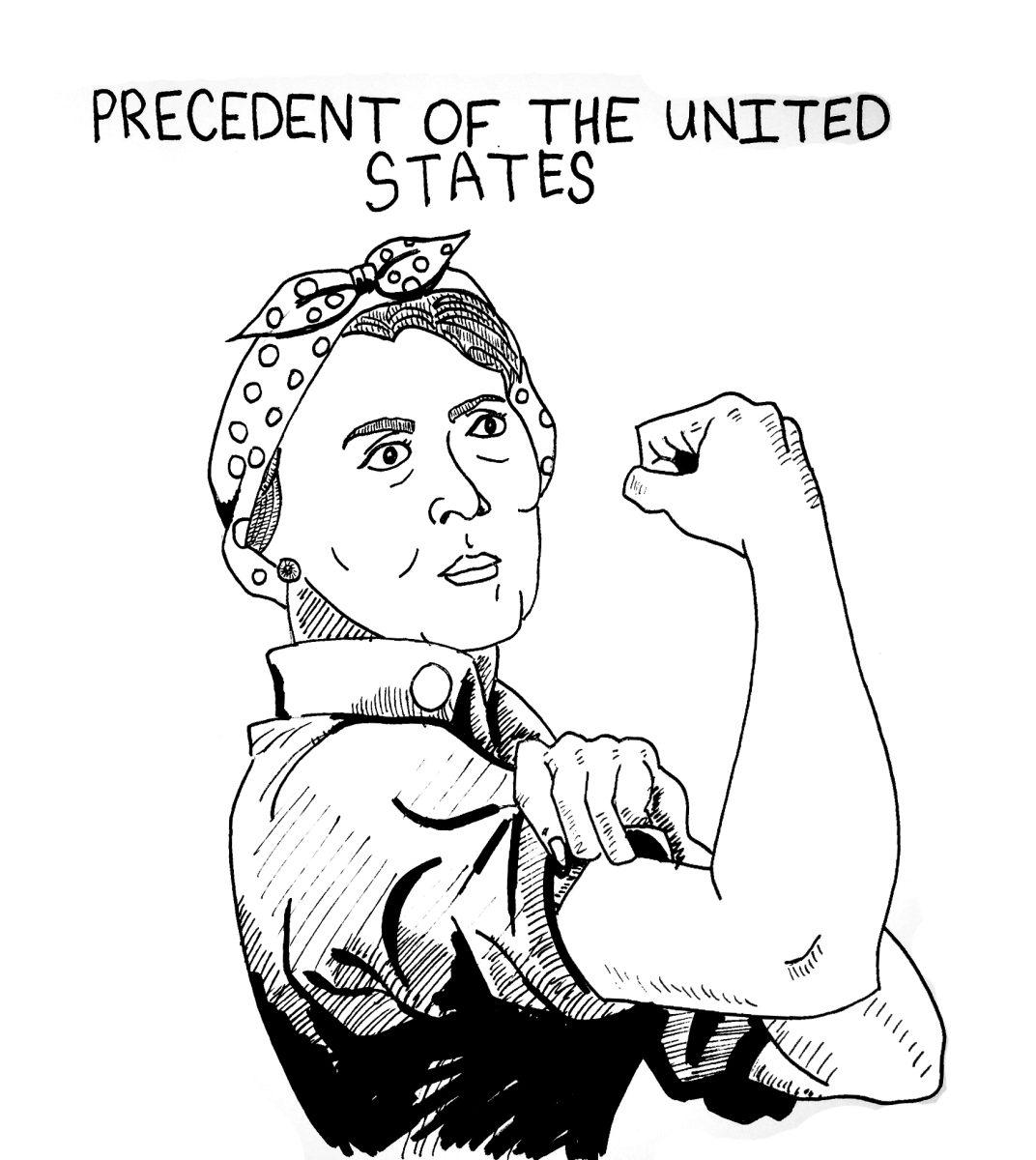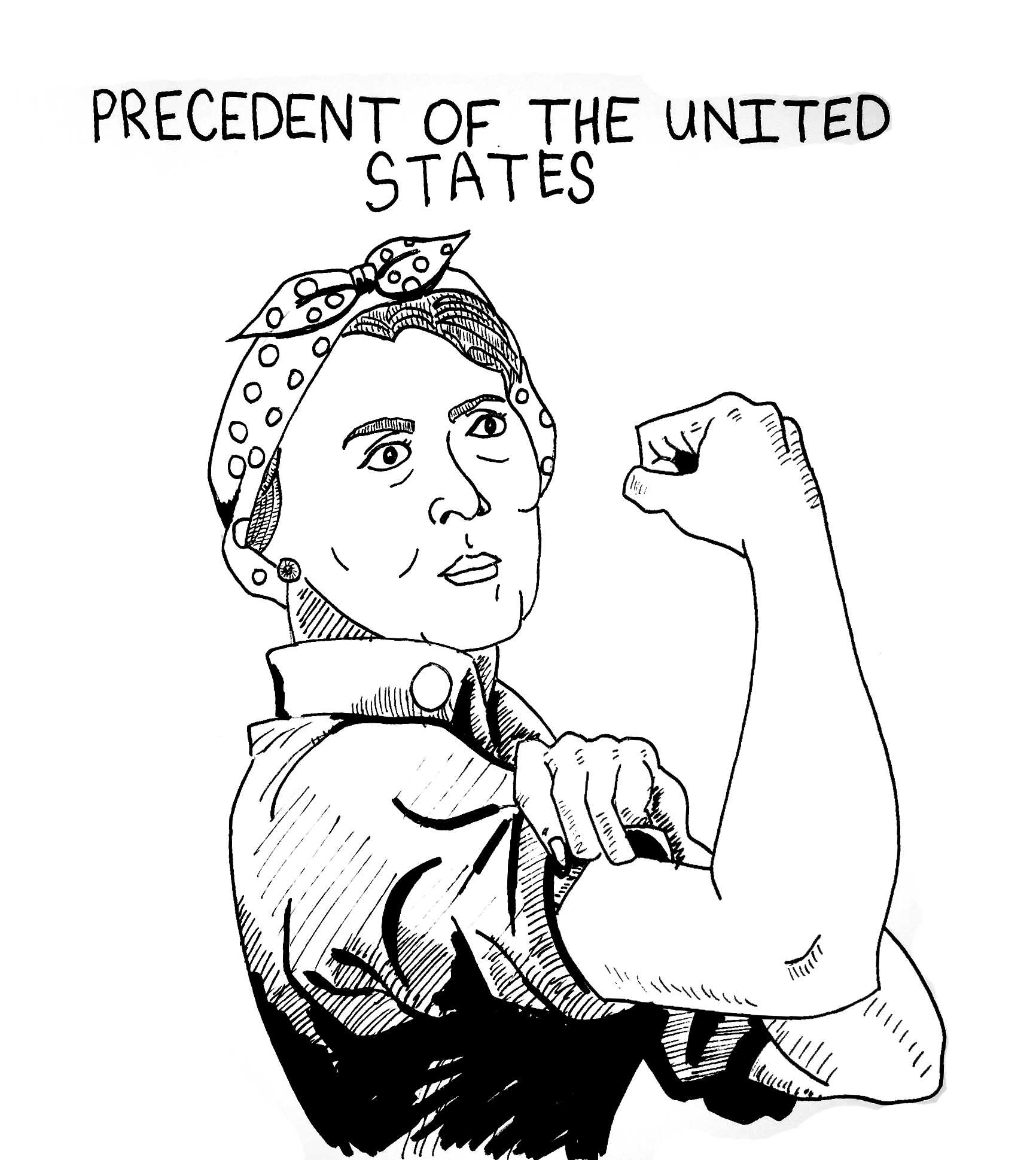Hillary Clinton announced her candidacy as the Democratic nomination for president on April 12, her second attempt to run for the highest office in the United States. But is America ready for the first woman president, or is the nation tired of political dynasties and reluctant to elect another Clinton to the White House?
Is she too old? By 2016, Clinton will be 69 when the November elections take place. And if she wins a second term, which incumbents usually do, Clinton will be 73. As a result, she is going to need to show voters, particularly young Americans that she can connect with them as President Barack Obama did eight years ago.
Some Americans resist her age and name as the main reasons she shouldn’t run for president. They argue she’s too old to be commander in chief and run the country.
Voters aren’t looking forward to a Clinton running the country for another eight years. They want a fresh face and someone with less mileage, whereas Clinton has accumulated more than 45 years of public service and is still an influential force in the political world, even out of office.
With double-digit leads over other potential democratic candidates such as Elizabeth Warren, Martin O’Malley and Joe Biden, it’s inevitable that Clinton will win the democratic nomination for presidency, without any real challenges ahead.
Experience-wise, Clinton wipes the field over her would-be Democratic rivals and Republican front-runners as well. Her résumé includes being first lady, senator and secretary of state, but critics point out if Clinton were elected it would simply be an extension of Obama’s policies, where about half of Americans disapprove, thus being labeled “Obama’s 3rd term.”
It will be historic on two accounts if Clinton is elected: She would be the first woman president in United States history; that alone is a merit on its own. Second, coming from the 2008 election where the United States elected its first black president, it would be an unprecedented two major back-to-back historic moments for the country.
According to the Center for American Women and Politics, women hold only 19.4 percent of the 535 seats in U.S. Congress. With less than one-fifth of Congress being comprised of women, can Clinton sincerely earn the majority vote and become the 45th and first female president?
The name Clinton resonates with nearly all Americans. Whether it’s the name itself or the reputation that follows, the Clintons could once again etch their name into U.S. history books and reenter the White House next November.
When it comes to voting, California is often considered a liberal state. Do the opinions of Californians, not to mention college students, truly represent the U.S. consensus when it comes to the next presidential election?
Women make 78 cents to every dollar a man makes and are often subjected to discrimination every day through the workplace and society in general. Could a female president change the gender hierarchy that exists today?
For many, electing a female president is extraordinary and something that could change the American dream, allowing other women to strive toward running for office in the future.
Electing a female president is more than the usual political ideologies and republican versus democrat—it’s the hope women can and will be treated equally and given the same privilege and upper hand men are born with in the United States.
Is the United States ready for a female president and will Clinton earn the majority vote? This is one question of many that remains unanswered, at least until 2016.
U.S. government is a bureaucracy historically ruled by white, middle-aged men, and the thought of a woman leading the nation is foreign to many. The gender stereotypes existing in the United States are so deeply ingrained and rooted in the American identity, it makes things hard to believe a woman can change them and become leader of the free world.





![[Both photos courtesy of sonoma.edu]
Ming-Ting Mike Lee stepped in as the new SSU president following Sakakis resignation in July 2022](https://sonomastatestar.com/wp-content/uploads/2024/04/CC4520AB-22A7-41B2-9F6F-2A2D5F76A28C-1200x1200.jpeg)



























